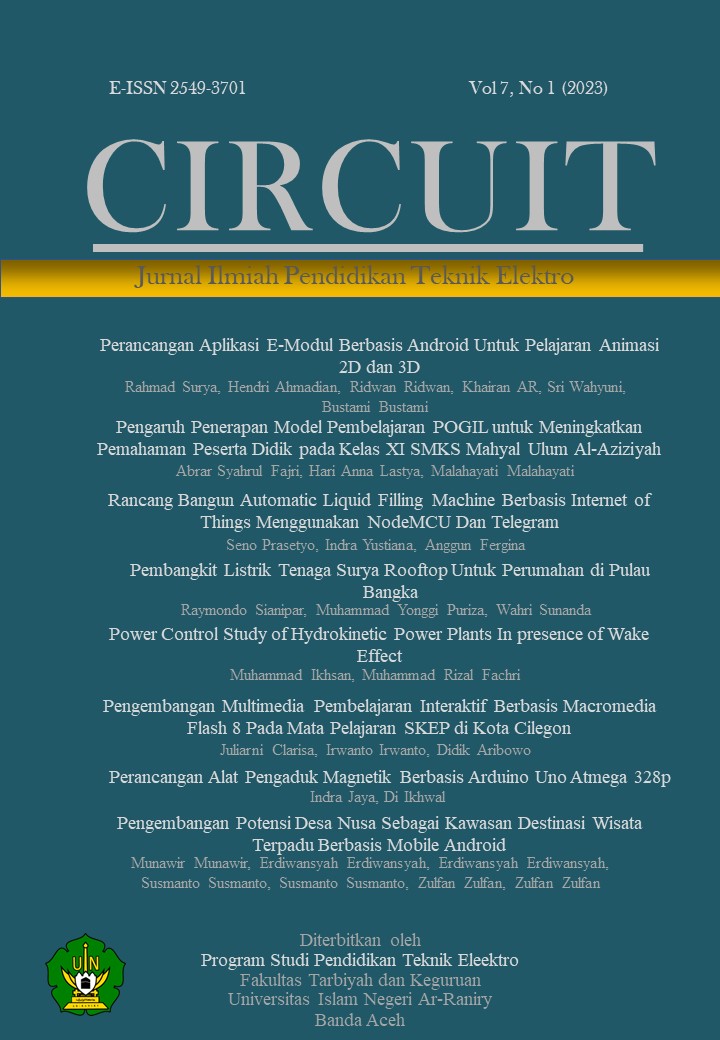Pembangkit Listrik Tenaga Surya Rooftop untuk Perumahan di Pulau Bangka
DOI:
https://doi.org/10.22373/crc.v7i2.14538Keywords:
D'Rich Arasel Housing, PV Rooftop, InvestmentAbstract
Rooftop Solar Power Plants are an alternative option for environmentally friendly power plants. The application of this technology for the electricity needs of residential areas can be done with the Solar Home System (SHS). One of the roofs that can be used for PV rooftops is the roof of the house in D'Rich Arasel housing with a roof area of 65.5 m². PV Rooftop in D'Rich Arasel housing is designed to meet daily electrical energy needs. The PV rooftop design uses 2 systems, system 1 is a PV mini-grid system based on a daily load that uses 22 units of 250 wp solar panels, 17 units of 150Ah batteries, 1 unit of 3 kW inverter, and 1 unit of solar charge controller 250 A which produces 4077 kWh/year at an investment cost. of Rp. 318,103,346 for 15 years and obtained an NPV value of Rp.-209.932,101. In system 2, namely the PV system based on the entire roof area using 36 units of 200 wp solar panels, 24 units of 150Ah batteries, 1 unit of 8 kW inverter, and 1 unit of a solar charge controller 250 A which produces 12851 kWh/year with an investment cost of Rp. 478,782,406 for 15 years and obtain an NPV value of Rp. 182,529,881.
Downloads
Published
Issue
Section
License
Authors who publish in CIRCUIT: Jurnal Ilmiah Pendidikan Teknik Elektro agree to the following terms:
- Authors retain copyright and grant the journal right of first publication with the work licensed under a Creative Commons Attribution-ShareAlike 4.0 International License (CC BY-SA 4.0) that allows others to share and adapt the work with an acknowledgement of the authorship and initial publication in this journal
- Authors are able to enter into separate, additional contractual arrangements for the non-exclusive distribution of the journal's published version of the work (e.g., post it to an institutional repository or publish it in a book), with an acknowledgment of its initial publication in this journal.
- Authors are permitted and encouraged to post their work online (e.g., in institutional repositories or on their website) prior to and during the submission process, as it can lead to productive exchanges, as well as earlier and greater citation of published work. (See The Effect of Open Acces)

